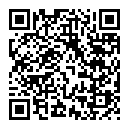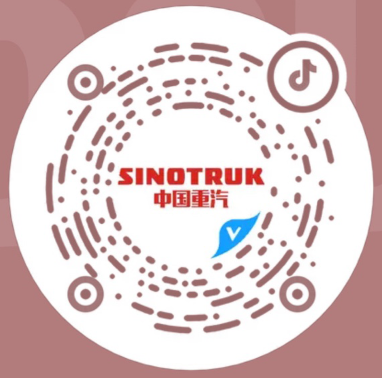Sinotruk (Hong Kong) Limited
Anti-Corruption and Bribery Policy
1. Purpose
Sinotruk (Hong Kong) Limited together with its subsidiaries (hereinafter referred to as 'Sinotruk', 'the Group') has always respected and complied with the laws and regulations of the People's Republic of China and other countries or regions where the operators are located, and has always operated its business legally, and has required all employees of all its directly-held and indirectly-held companies to be honest and law-abiding, and not to engage in any corruption commercial bribery, or money laundering. The purpose of the policy is to require the senior management and all other employees (including full-time, part-time employees, and contractors, etc.) of the Group (collectively referred to as the 'Employees') to comply with the applicable anti-commercial bribery, anti-corruption and anti-money laundering laws.
2. Applicability
The policy applies to all employees of the Group and all 'business partners' (including but not limited to customers, suppliers, agents, distributors, service providers, third- party intermediaries, etc.) with whom the Group conducts business.
3.Definition
Bribery, as referred to in the policy, means the use of property or other means to bribe entities or individuals in order to obtain trading opportunities or competitive advantages.
4. Risk Assessment and Response
Scientific and systematic anti-commercial bribery and anti-corruption risk assessment procedures shall be established to identify, analyze, evaluate and dispose of risks, and the effectiveness of the risk assessment procedures and the results of the assessments shall be regularly reviewed. A comprehensive assessment shall be conducted at least annually, covering all operational activities.
5. Business Partner Control
Anti-commercial bribery agreements should be signed with third-party business partners or relevant provisions should be included in business agreements. The occurrence of fraud, bribery, exchange of benefits, money-laundering and other behaviors to seek improper benefits is strictly prohibited, different treatment measures for defaulting suppliers depending on the severity of the situation are clarified, and relevant reporting channels are also clarified.
Suppliers should establish policies, codes of conduct, and operational procedures to eliminate any form of bribery, corruption, fraud, and unfair competition, ensuring strict enforcement. The Group encourages suppliers to conduct compliance audits and assessments to verify adherence to the areas covered by this policy, and to provide all necessary relevant information and documentation to the Group.
6.Training
All employees (including part-time staff) must complete the Group’s anti-corruption and anti-commercial bribery training during onboarding, while contractors are required to complete such training before commencing work. Active participation in the Group’s ad hoc training sessions is mandatory. Post-training, employees must pass compliance tests, with results factored into performance evaluations. Contractors failing to complete the training shall not initiate any collaborative projects.
7. Response of Whistleblows and Protection of Whistleblowers
Sinotruk will conduct regular training to ensure all employees are aware of and familiar with the reporting channels and procedures, thereby enhancing the overall awareness of anti-bribery and anti-corruption practices.
If any bribery, embezzlement, corruption, etc. is discovered, anyone can report and provide relevant clues and materials to the department responsible for compliance. Upon receipt of the report, the department in charge will, after communicating with the whistleblower, carry out the relevant investigation in accordance with the relevant anti- commercial bribery and anti-corruption investigation process.
The Group will maintain the confidentiality of the informant's information and protect the informant's personal rights, property rights, work rights, honor rights, and other legitimate rights and interests.
For those reported cases which are verified, we encourage whistleblowers to be rewarded according to the nature of the case, and timely rectification of internal control gaps identified during investigations.
For more information on the process of receiving reports and whistleblower protection, please refer to the Policy for Whistleblowing and Whistleblower Protection.
Upon completion of the investigation, the responsible department will prepare an investigation report on the violation, clearly specifying the facts of the violation, the evidence chain, responsibility determination, and proposed handling recommendations. After internal review and approval, the case will be handled in accordance with the violation handling procedures (including stages such as clue acceptance, investigation and evidence collection, responsibility determination, decision-making, and execution supervision), and corrective measures will be implemented accordingly.
The Group develops appropriate supervision procedures, conduct regular safety inspections and audit assessments, report results and take improvement measures promptly not to engage in any corruption or commercial bribery or money laundering.
8. Disciplinary Actions
All employees, management personnel, and relevant individuals who violate this policy will be subject to serious disciplinary sanctions in accordance with the relevant systems and regulations of Sinotruk, after investigation and verification; for cases involving serious circumstances, egregious impact, or criminal offenses, the labor contract will be terminated (i.e., dismissal), and the right to pursue legal responsibilities in accordance with the law will be reserved. The individuals concerned may also face independent criminal and/or civil legal liabilities in their respective jurisdictions. The violation handling procedure includes stages such as clue acceptance, investigation and evidence collection, responsibility determination, decision-making, and execution supervision, ensuring that every violation is handled fairly and in compliance with established protocols.
9. Anti-Money Laundering
Money laundering refers to acts aimed at concealing or disguising the origins and nature of proceeds derived from criminal activities—including but not limited to drug-related crimes, organized crime, terrorism, smuggling, corruption, financial fraud, and other offenses—through means such as providing financial accounts, converting property, cross-border transfers, or other methods.
Potential money laundering activities include but are not limited to: Providing financial accounts; Converting property into cash, financial instruments, or securities; Transferring funds via transactions or other payment settlements; Cross-border asset transfers; Any other means to conceal or disguise the illicit origins or nature of criminal proceeds. Any identified red flags must be immediately reported to the Risk Management Department for further investigation.
10. Donations
The Group shall cooperate with governments in good faith and maintain political neutrality. It is prohibited to donate to any political party or candidate. All donations made by or in the name of the Group must comply with limits set by the Board of Directors and obtain prior approval under the Sponsorship and Donation Policy.
11. Regulations on Gift Management in Commercial Activities
This Group strictly regulates gift-giving practices in external commercial activities. It prohibits offering benefits in any form — including attaching cash/items, making false donations, providing improper sponsorships (including travel), offering membership cards/consumption cards/shopping cards, giving away physical items such as houses or vehicles, granting sweat equity dividends, or channeling benefits under the guise of business expenses (such as promotional fees or consulting fees) — or engaging in other improper acts that violate laws and regulations. These measures ensure that all commercial activities adhere to principles of fair competition and uphold the company’s image of integrity and compliance.
12. Supplementary Provisions
Anything not covered in this policy, or contrary to the relevant laws, regulations, or normative documents of the People's Republic of China, should be implemented in accordance with the relevant laws, regulations, or normative documents of the People's Republic of China.









 鲁公网安备37010202000616号
鲁公网安备37010202000616号